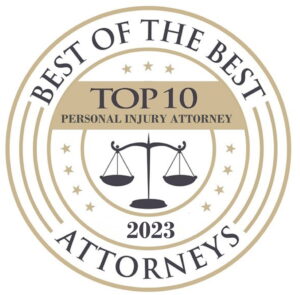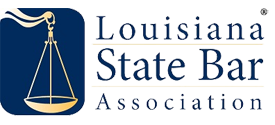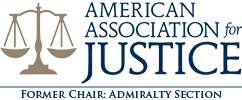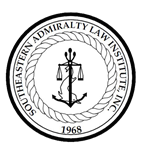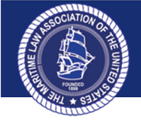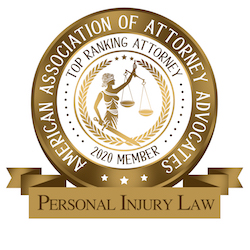In 2015, 10,265 people died in alcohol-impaired driving crashes in the United States, accounting for nearly one-third (29 percent) of all traffic-related deaths. That same year,
nearly 1.1 million drivers were arrested for driving under the influence of alcohol or narcotics. Although fatalities from alcohol-related crashes have been declining, injuries and deaths remain unfortunately common.
Between 2003 and 2012, 3,046 people were killed in Louisiana in crashes involving a driver with a blood alcohol content (BAC) of greater than 0.08 percent, the threshold for the state’s driving while intoxicated (DWI) law. Drivers with a BAC of 0.08 percent or higher are considered alcohol-impaired under the law.
If you’ve been involved in an auto accident where the other driver was intoxicated or under the influence of alcohol or drugs, you deserve to be compensated. The experienced auto accident and personal injury attorneys of the Patrick Yancey Law Firm have handled many DWI/DUI injury cases and can help you recover the compensation you deserve.
Louisiana Drunk Driving Laws
The State of Louisiana has enacted harsh penalties against drinking and driving to try to reduce the number of injuries and fatalities:
- A first offense is a criminal conviction that may result in imprisonment of up to 6 months, a $1000 fine (plus court costs), and a 90-day suspension of your driver’s license.
- A second offense within five years will result in 48 hours’ mandatory imprisonment, with the possibility of further incarceration for up to 6 months, as well as a $1000 fine (plus court costs), and a one-year revocation of your driver’s license.
- A third offense within 10 years escalates to a felony conviction with 30 days’ mandatory incarceration (with potential additional jail time of 1-5 years), as well as a $2000 fine (plus court costs), a one-year revocation of your driver’s license, mandatory substance abuse treatment, and seizure of your vehicle.
- A fourth offense is a felony with penalties of up to 30 years’ incarceration, as well as a $5500 fine (plus court costs), a 30-year revocation of your driver’s license, and mandatory substance abuse treatment.
Louisiana also allows sobriety checkpoints, where police can briefly stop vehicles at highly visible locations to see if drivers are impaired. Police can stop all vehicles or vehicles at random regular intervals (e.g., every 6th car). If officers suspect a driver is intoxicated, they may perform field sobriety or breathalyzer tests.
Culpa, responsabilidad y recuperación
The state of Louisiana has a “fault-based system” that applies to automobile accident cases. This means that the court or other finder of fact will decide who was legally at fault in the event of a car crash and hold that driver (or his insurance company) accountable for damages (i.e., compensation to a victim for injuries or property damage). You cannot recover compensation for your injuries or any other damages unless you can prove that another party was liable for the collision.
A driver’s intoxication is not assumed to be the cause of an accident, although proof that a driver was impaired can be important evidence when evaluating fault. A court will look at all available evidence to determine the cause or causes of the occurrence that resulted in your injuries and assign fault as appropriate.
Even if you are the victim, it’s possible that you may be held partially liable for causing a collision (for example, if you were engaging in reckless or distracted driving, speeding, or otherwise disobeying traffic laws). This is called “comparative negligence” (Louisiana Civil Code 2323). Although it doesn’t prevent you from recovering compensation for your injuries, it will reduce the amount of your compensation. If a court determines you were 20 percent at fault for an accident, for example, it would reduce the amount of your award by 20 percent.
Damages in DWI/DUI Cases
Under Louisiana’s civil code system, the damages that an injured plaintiff can recover at trial are typically limited to those necessary to compensate you for your injuries rather than to punish the responsible party. These are so-called “special” damages (direct reimbursement for medical bills, wage loss, and other related expenses) and “general” damages (compensation for loss of enjoyment, pain and suffering, and other broad losses).
However, “punitive” damages are specifically allowed by Louisiana law in a very limited number of circumstances, and drunk driving is one of them. This can dramatically increase an injured victim’s recovery in a car accident involving a drunk driver.
For a court to award punitive damages, a victim has to show four things:
- The driver was intoxicated (not necessarily above the “legal limit” of 0.08 percent BAC, but having impaired mental or physical abilities as a result of drugs or alcohol)
- The driver “wantonly or recklessly” disregarded the rights or safety of others;
- The driver caused damages while operating a motor vehicle; and
- The driver’s intoxication was the cause of the victim’s injuries.
Contrate a un abogado con experiencia en accidentes de tráfico en Luisiana
If you’ve been hit by a drunk driver, seek legal counsel immediately. An experienced attorney will evaluate the facts of your case and advise on the best course of action to ensure you receive the most compensation possible. This may include recovering costs for past and future medical care, wage loss, pain and suffering, and, potentially, punitive damages.
The Patrick Yancey Law Firm understands the issues involved in auto collisions, especially those caused by drunk drivers and drivers operating a vehicle under the influence. Our approachable, understanding advocates will be your partners every step of the way, helping to resolve your issues in the most efficient and cost-effective way possible so you can recover the compensation you deserve. Contact us today for a free, no-obligation case evaluation.

